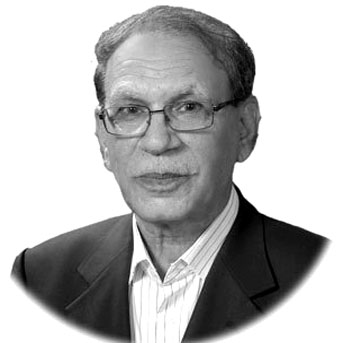Mohammad Jamil
PEOPLE of Afghanistan understand the devious role played by India and other spoilers in Afghanistan in creating roadblocks in the peace process. Yet there is renewed hope for peace in Afghanistan vis-vis the US-Taliban agreement, release of a part of prisoners by Taliban and Afghan government and on Sunday power-sharing deal between President Ashraf Ghani and Abdullah Abdullah. President Ashraf Ghani said it was a historic day for Afghanistan and the agreement was reached without any international mediation. But it is not true, as there was a pressure by the US to sort out their differences and implement the provision of US-Taliban agreement with regard to release the Taliban prisoners. Reduction in US aid to Afghanistan by dollars one billion appears to have compelled the rival parties to come to an agreement, which could pave the ground for a ceasefire and then lasting peace.
Abdullah said that the deal is committed to forming a more inclusive, accountable and competent administration. “It’s meant to ensure a path to peace, improve governance, protect rights, respect laws and values, he said on Twitter after signing the deal. Abdullah’s spokesman, Fraidoon Khawzoon told AFP news agency the agreement ensured Abdullah’s group 50% of the Cabinet and other Provincial Governors’ posts. Abdullah had previously served as Afghanistan’s “Chief Executive” under an earlier power-sharing deal but lost that post after he was defeated in a presidential election that the incumbent Ghani won. The agreement further says that Ghani will make Abdul Rashid Dostum, his former vice president changed side and became ally of Abdullah, will be designated as marshal of the armed forces. Dostum, a controversial military commander, was accused of ordering the torture and rape of a political rival in 2016.
The agreement named Abdullah to lead future peace talks with the Taliban, which has already signed a landmark accord with the United States to pave the way for the withdrawal of foreign forces from Afghanistan. US Secretary of State Mike Pompeo on Sunday welcomed the power-sharing deal. State Department spokeswoman Morgan Ortagus said in a statement: “Secretary Pompeo regretted the time lost during the political impasse. He reiterated that the priority for the United States remains a political settlement to end the conflict and welcomed the commitment by the two leaders to act immediately in support of prompt entry into intra-Afghan negotiations.” NATO, which maintains a training mission in Afghanistan, hailed the deal and urged Afghan leaders and the Taliban to work for peace. Pakistan also welcomed the power-sharing deal between Abdullah Abdullah and President Dr. Ashraf Ghani.
Months after the presidential election, Independent Election Commission had declared Ashraf Ghani as officially elected; however, Abdullah Abdullah claimed victory in the election. European Union had congratulated Dr. Ashraf Ghani after the Election Commission announced the election result. Gulbudin Hekmatyar presidential candidate and leader of Hizb-e-Islami in a press conference had rejected the result announced by Independent Election Commission declaring incumbent Ashraf Ghani country’s next president. He said: “We do not support the parallel government (as announced by Abdullah Abdullah), but we support an inclusive government where all see themselves represented including the Taliban.” Former President Hamid Karzai had also in a statement rejected the election results.
Meanwhile, the Taliban accused India of playing a negative role by supporting the government in Kabul. In an interview to Azm, a news website, Sher Mohammad Abbas Stanekzai, Deputy Head of the Taliban’s Political Office in Qatar and head of the negotiating team with the US, was quoted as saying that “if the Indian government wants to take positive steps in the Afghan peace process and in rebuilding a new Afghanistan, we are counting on it”. But he at the same time added that India had been inside Afghanistan for the last 40 years, and it played a negative role by maintaining economic and political ties with a corrupt government. According to reports, the recent US envoy Zalmay Khalilzad’s mission to New Delhi was not so much about asking India to talk to the Taliban, as to get New Delhi to persuade the Kabul government to release the Taliban prisoners.
The Ghani government is believed to be dragging its feet taking the plea that the Taliban are not interested in an intra-Afghan dialogue, which is travesty of the truth. In a recent interview, Stanekzai asserted “Intra-Afghan dialogue cannot start unless 5,000 of our prisoners are released, and there would be no ceasefire and reduction in violence unless intra-Afghan dialogue starts. The US and the Kabul administrations are responsible for this situation.” In fact, Abdullah Abdullah and President Ghani do not wish to see intra-Afghan dialogue a success, because they know for sure that during negotiations the Taliban would insist on changing the constitution, and also re-elections. In his lengthy treatise/article published in the New York Times before the US Taliban deal was signed, Siraj-ud-din Haqqani Deputy Leader of the Taliban had dwelt on every subject – from domestic policy to international relations.
He wrote: “We will take all measures in partnership with other Afghans to make sure the new Afghanistan is a bastion of stability and that nobody feels threatened on our soil…We are aware of the concerns and questions in and outside Afghanistan about the kind of government we would have after the foreign troops withdraw. My response to such concerns is that it will depend on a consensus among Afghans. I am confident that liberated from foreign domination and interference, we together will find a way to build an Islamic system in which all Afghans have equal rights, where the rights of women that are granted by Islam — from the right to education to the right to work — are protected, and where merit is the basis for equal opportunity”.
—The writer is a senior journalist based in Lahore.










